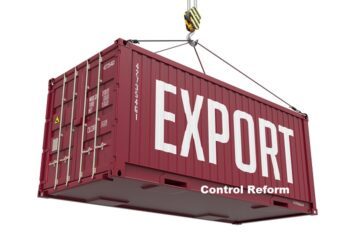By: Bruce H. Leeds, Senior Counsel
Those who deal with both the International Traffic in Arms Regulations (ITAR) and Export Administration Regulations (EAR) have undoubtedly noticed that the two sets of regulations use different terms for similar concepts. For example, the ITAR uses the term “technical data”, and the EAR “technology” for a similar purpose. Another example is when the ITAR uses the word “exemption” for shipments not requiring a license, and the EAR uses “exception” for the same idea.
Part of the Export Control Reform process is to develop the same, or similar, definitions for terms used in the export regulations. The previous process to arrive at a definition for “specially designed” is an example of this.
On June 3, 2015, both the Department of State and Department of Commerce published proposed rules in the Federal Register to amend the ITAR and EAR to add or change certain definitions.
The proposed changes to the ITAR would change or amend the following definitions:
- Defense Article
- Technical Data
- Public Domain
- Product of Fundamental Research
- Electronic Transmission and Storage of Technical Data.
The proposed changes to the EAR would affect the following definitions:
- Technology
- Required
- Peculiarly Responsible
- Proscribed Person
- Published
- Results of Fundamental Research
- Export
- Re-export
- Release
- Transfer
- Transfer In-country
We don’t have the time or space to go through all of the changes within this article, but I will note some of the more prominent proposed changes.
The definition of “export” in the EAR and ITAR will not be the same, but they will more closely correspond with one another. Both add the concept of releasing technical data or technology to a foreign person in the U.S. as part of the definition (a deemed export). Both regulations also include transfer of ownership or control of a spacecraft to a foreign person within the definition of export.
Interesting changes are proposed §734.18 and 734.20 to the EAR and §120.52 to the ITAR, which would define activities that are not exports, deemed exports, re-exports or transfers. Primarily these deal with transfers of technology and use of encryption.
A new Supplement to §734 adds “Questions and Answers – Technology and Software Subject to the EAR.” This is intended to give guidance on the controls applicable (or not) to such exports.
The proposed rule for the EAR adds a definition for the term “peculiarly responsible.” This term is currently used in the EAR but is not defined. The proposed definition uses the “catch and release” approach for the term “specially designed” in the EAR and ITAR, providing a general definition of what is captured by the term, followed by several circumstances under which something would be released from being “peculiarly responsible.”
The proposed rule does not harmonize the terms “technical data” and “technology” (they remain separate terms in the ITAR and EAR), but does modify both definitions to make them more uniform and also consistent with the definition under the Wassenaar Arrangement. It modifies the EAR definition of “technology” to incorporate the definitions of “technical data” and “technical assistance” as illustrative lists. Both proposed rules also provide clarity for the term “modification” to state that modification means creating a new article and technical data to support the modification is technical data for the new article.
Consistent with this, the Federal Register notice proposes to add 2 new sections to the ITAR: §120.47 would define “development” and §120.48 “production.” These terms are now used in the EAR and the Wassenaar Arrangement.
Both proposed rules tackle the sometimes difficult concept of “fundamental research.” The change to the EAR would streamline §734.8 by consolidating several provisions that involve the same criteria. §734.8 would also incorporate the definition of fundamental research found in the National Security Decision Directive-189, but Commerce solicits comments on whether a simpler definition could be used instead. The changes to the ITAR also involve a refined definition of fundamental research, as well as guidance (in §120.49) on technical data arising or resulting from fundamental research.
There are other changes proposed in these Federal Register notices that affect the ITAR and EAR. Export compliance personnel should familiarize themselves with the proposed new and revised definitions, because if they are adopted in anything close to what is being proposed they will greatly affect licensing and compliance activities.
The comment period for both Federal Register notices expired on Aug. 3, 2015. The agencies will now digest the comments and draft final or another round of proposed rules for publication in future Federal Registers.

























